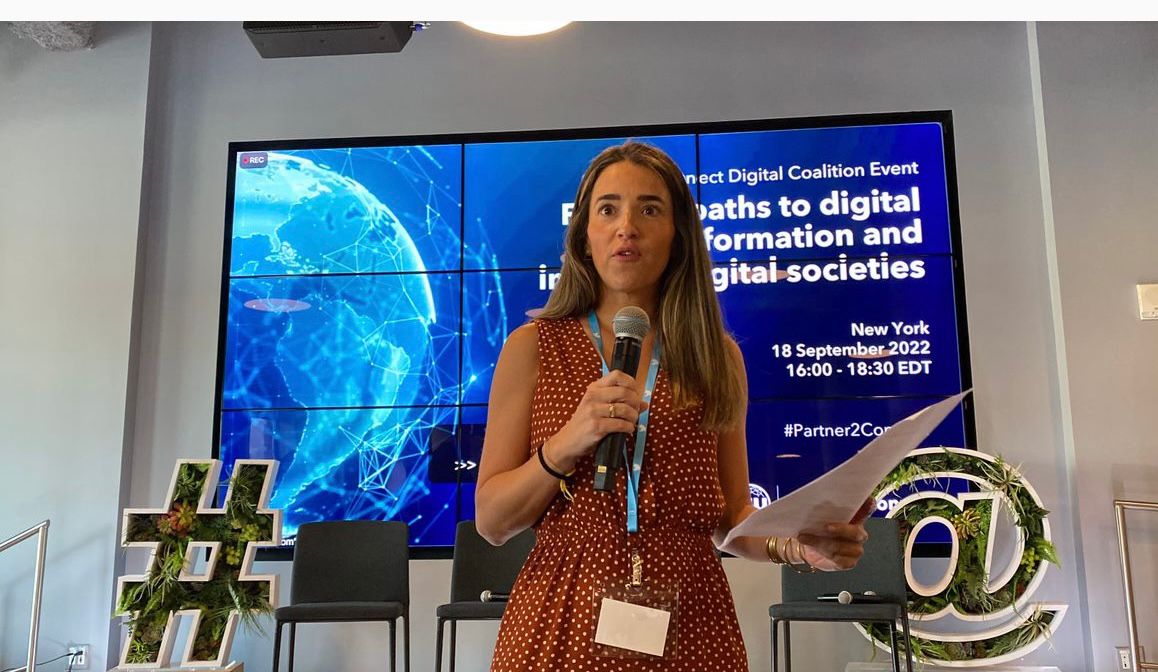Digitalization and technology innovation will be critical if society is to make progress towards a more inclusive, sustainable world. However, according to data published by the International Telecommunication Union (ITU), the United Nations’ specialized agency for information and communication technologies, 2.7 billion people worldwide, one in three, are still not connected, and most of these live in developing countries.
Experts state that even though user numbers rose as a result of the pandemic, this sharp increase will not continue at the same rate and add that, if the whole world is to be connected by 2030, digital skills must be boosted, and investment made in infrastructure.
Implemented in 2020, the Roadmap for Digital Cooperation seeks to encourage connectivity and digital transformation around the globe, focusing on the communities with the greatest difficulties. Now, in the framework of the UN’s General Assembly – where the challenges we are facing are being put on the table – the largest-ever forum on connectivity and digitalization has come together: the United Nations Digital Coalition, Partner2Connect. BBVA Microfinance Foundation was there, the only Spanish institution to take part.
In 2021, 12% of the BBVAMF entrepreneurs in Peru signed up digitally as clients without having to go to a branch office
During her speech, BBVAMF’s Director of Innovation for Inclusive Growth, Gabriela Eguidazu, highlighted how the Foundation has refined its model over the course of the 15 years it has been operating, using new technologies so that the nearly 3 million low-income people it serves in Latin America are not left behind. Reaching entrepreneurs in rural, remote or excluded areas to bring financial services to the most vulnerable and take connectivity to the places that are most difficult to reach.

BBVAMF Director of Innovation for Inclusive Growth, Gabriela Eguidazu, during her speech at the UN Digital Coalition event, Partner2Connect
With them in mind, the foundation has designed digital channels that save them time and money: their own app (which even works offline), a chat on their mobile phones that enables them to pay and consult transactions, and facial biometrics to sign documents; all part of its strategy of staying close to help overcome the barriers resulting from lack of information, lack of trust and technophobia.
392,616 entrepreneurs were already using the app or the web for their operations by the end of 2021. For example, 12% of Financiera Confianza clients, BBVAMF’s institution in Peru, have signed up digitally as users without having to go to a branch office.
Furthermore, so far this year over 500,000 people have received training in BBVAMF institutions (more than 236,000 online or in hybrid formats), most of whom were women.
Beyond connectivity
Partner2Connect participants agreed that the priority in these times of uncertainty, as well as achieving universal connectivity, is to move on from basic connectivity to one that is more efficient. To achieve this, it made a call on partnerships to make improvements in connection quality and speeds, cost, the lack of digital skills and language barriers.
“The COVID-19 pandemic pushed connectivity forward enormously, but we have to keep the momentum going to ensure that everyone, everywhere can benefit from digital technologies and services”, declared the Secretary General of the ITU, Houlin Zhao. “This can only be achieved with more investment in digital networks and technologies, applying best practices and focusing continually on developing competences.”
One of BBVA Microfinance Foundation (BBVAMF)’s priorities is to digitalize the most vulnerable segments, to guarantee digital inclusion. In June it joined the digital coalition Partner2Connect, the global partnership launched by the ITU and the Office of the Secretary-General’s Envoy on Technology. In 2022 it has once again been acknowledged as the leading foundation in contributing to development in Latin America, and the second in the world, according to OECD reports.

